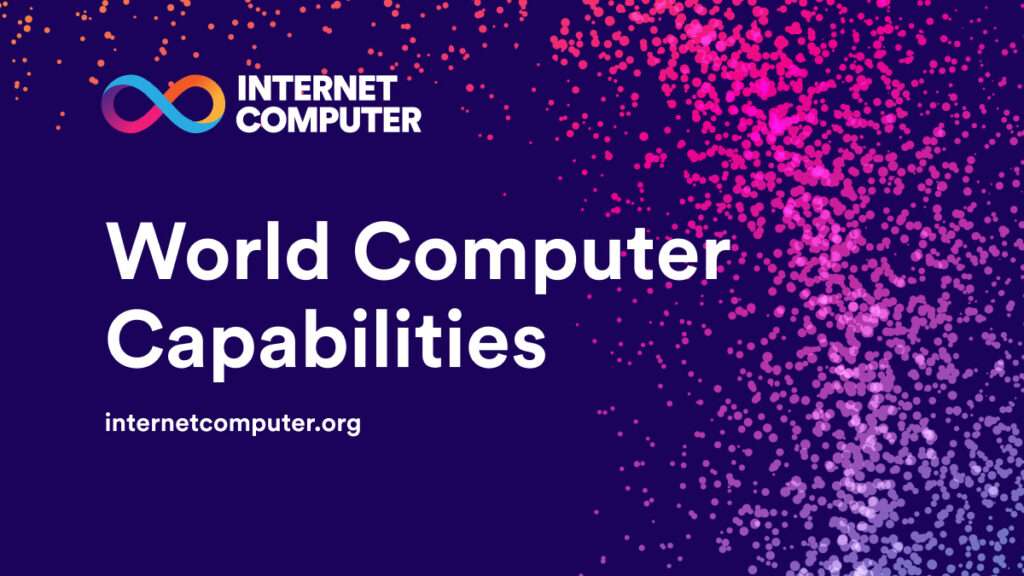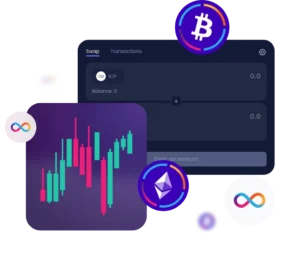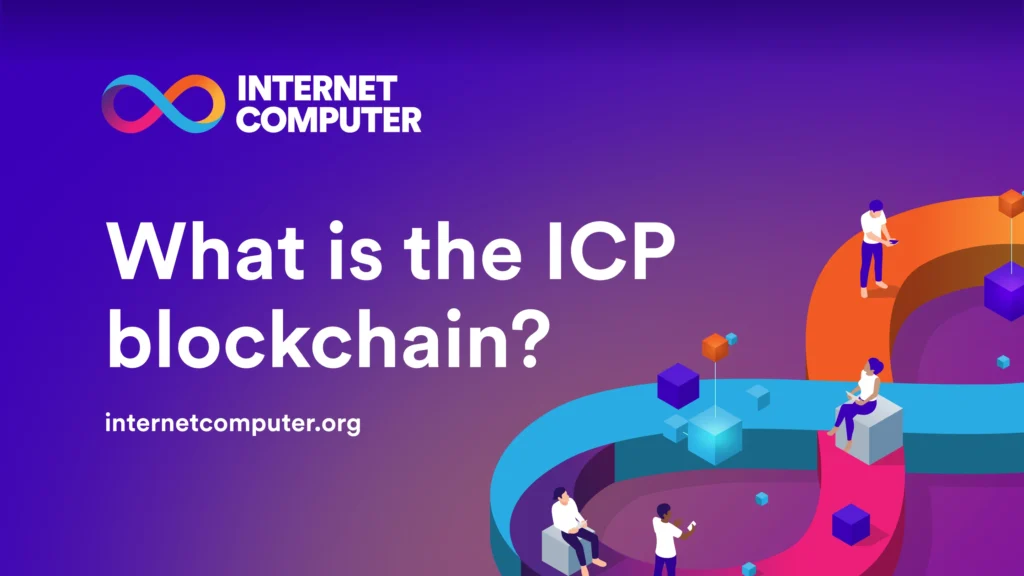Latest News
- Best Long Term Crypto Alert: BlockDAG Presale Momentum Beats AVAX, FIL & ICP in 2025 Forecasts
- Crypto Price Analysis 4-16: BITCOIN: BTC, ETHEREUM: ETH, SOLANA: SOL, ALGORAND: ALGO, BITTENSOR: TAO, ARBITRUM: ARB, INTERNET COMPUTER: ICP
- Crypto AI tokens to watch after Nvidia’s and OpenAI’s latest moves: RNDR, ICP and SEI price analysis
- Still Holding ICP and Aptos? Here’s Why Qubetics Might Be Your Best Crypto Under $1 Bet
Current Price
The current price of ICP is $4.82904
Introduction
Welcome to our ICP review.
The Internet Computer (ICP) is a groundbreaking platform that challenges traditional notions of decentralized computing, offering developers the ability to build and deploy applications in a truly autonomous environment.
Its innovative architecture, characterized by canisters and Chain Key Technology, promises enhanced scalability and performance across various sectors, from finance to healthcare.
However, as the ecosystem develops, it faces hurdles that could impact its trajectory.
Understanding these complexities is essential to grasping ICP’s role in the evolving landscape of blockchain technology and what it might mean for future applications.
Interested to learn more? Let’s dive in…
Quick Overview
- Internet Computer (ICP) revolutionizes decentralized computing by enabling applications to run directly on the web without centralized servers.
- Its unique “canisters” allow developers to create efficient applications, combining code and state for optimal performance.
- The platform supports high transaction speeds, achieving thousands of transactions per second for real-time applications.
- Decentralized governance through the Network Nervous System (NNS) empowers community participation in platform updates and decisions.
- ICP faces challenges in scalability, regulatory compliance, and ecosystem development, crucial for its long-term success and adoption.
Here’s a great review video about ICP:
Overview of Internet Computer
The Internet Computer represents a groundbreaking advancement in decentralized computing, aiming to extend the functionality of the traditional internet by enabling developers to build and deploy applications directly on a public network.
This innovative platform is designed to overcome the limitations of existing cloud computing services by eliminating reliance on centralized servers, thereby enhancing scalability, security, and interoperability.
At its core, the Internet Computer utilizes a unique consensus mechanism known as the Network Nervous System (NNS), which governs the operations of the network and facilitates seamless updates and governance.
This decentralized architecture supports smart contracts, referred to as “canisters,” which can execute complex computations autonomously. Developers can leverage these canisters to create a wide array of applications, from decentralized finance (DeFi) to social networks, all while benefiting from reduced latency and lower costs compared to traditional solutions.
Furthermore, the Internet Computer distinguishes itself by enabling direct interaction with web browsers, allowing users to engage with applications without the need for intermediaries.
This capability not only enhances user experience but also fosters a more inclusive ecosystem where innovations can thrive without the constraints imposed by conventional internet infrastructure.
Unique Features and Innovations
Revolutionizing the landscape of decentralized applications, the Internet Computer introduces several unique features that set it apart from traditional platforms. At the core of its architecture is the novel concept of “canisters,” which are autonomous smart contracts that combine code and state, enabling efficient execution and seamless scalability. This integration allows developers to create complex applications without worrying about the underlying infrastructure.
Moreover, the Internet Computer leverages an innovative consensus mechanism known as “Chain Key Technology.” This mechanism enables the network to achieve scalability and security by allowing nodes to verify transactions rapidly while maintaining a high throughput. As a result, the Internet Computer can support thousands of transactions per second, catering to real-time applications.
Additionally, the platform’s decentralized governance model empowers the community to influence its evolution, ensuring that development aligns with user needs and expectations.
In addition, the Internet Computer’s ability to host applications directly on the web, eliminating the reliance on traditional cloud services, enhances both accessibility and user experience.
Collectively, these features create a robust ecosystem that redefines the capabilities of decentralized applications, positioning the Internet Computer as a pioneering force in the blockchain space.

Use Cases and Applications
Various industries are beginning to recognize the transformative potential of the Internet Computer, which offers a versatile platform for diverse applications. Its architecture allows developers to build decentralized applications (dApps) that are not only efficient but also inherently secure and scalable.
The Internet Computer’s unique capabilities facilitate several promising use cases that can disrupt traditional paradigms.
- Decentralized Finance (DeFi): The Internet Computer can host financial applications that provide users with the ability to trade, lend, and borrow without intermediaries, thereby reducing costs and increasing accessibility.
- Social Media Platforms: By enabling decentralized social networks, the Internet Computer allows users to control their data and monetize their content, addressing privacy concerns prevalent in traditional platforms.
- Supply Chain Management: The transparency and traceability inherent in blockchain technology can be leveraged to enhance accountability and efficiency in supply chains, reducing fraud and ensuring quality.
- Gaming: The platform supports the development of decentralized games, where players can truly own their in-game assets, consequently reshaping the gaming economy.
Performance and Scalability
Achieving ideal performance and scalability is critical for any blockchain platform, and the Internet Computer excels in this regard through its innovative architecture. Unlike traditional blockchains that rely on a linear chain of blocks, the Internet Computer employs a unique model that allows for parallel processing of transactions. This architecture greatly enhances throughput, enabling the platform to support thousands of transactions per second, which is essential for demanding applications.
The Internet Computer utilizes a decentralized network of nodes that operate under a consensus mechanism known as Chain Key Technology. This mechanism enables the quick finalization of transactions and guarantees that the state of the network remains synchronized across all nodes without compromising security.
In addition, the platform’s ability to scale horizontally allows it to accommodate an increasing number of users and applications seamlessly.
Additionally, the use of WebAssembly (Wasm) as its execution environment facilitates high-performance computations, making it an attractive option for developers looking to build sophisticated applications.
As a result, the Internet Computer not only meets the current demands of decentralized applications but also positions itself as a frontrunner in delivering scalable solutions for future growth in the blockchain ecosystem.

Layer 1 Blockchain Comparison
Our expert team here at Trade Wise has researched and created a comparison table of the most popular layer 1 blockchains including all of the most important data on each chain, including; theoretical transactions per second, average transaction fee, time to finality and much more.
We collected this data in June 2024 so it may change over time (especially gas fees, and Solana‘s theoretical TPS will increase significantly with the Firedancer upgrade for example).
This table contains all the data you need to make an informed comparison of how the most popular layer 1 blockchains perform and the strengths and weaknesses of each.
Blockchain Performance Comparison (June 12, 2024)
| Ethereum | Cardano | Solana | Avalanche | Algorand | Internet Computer | |
|---|---|---|---|---|---|---|
| Theoretical TPS | 119 | 386 | 65,000 | n/a (4,500 TPS was claimed previously) | 6,000 | 11,500 |
| Live TPS | 14 | 1.96 | 2,100 (including vote TXs) 980 (excluding vote TXs) | 3.5 (C-Chain only) 15.5 (including subnets) | 28.9 | ~6,000 |
| Average Transaction Fee | $8.57 | $0.17 | $0.02 | $0.27 | $0.0008 | $0.0012 (ICP transfers) |
| Transaction Finality | ~15 minutes | 12 hours (absolute certainty) Between 2 min and 25 min (practical purposes) | ~12 seconds | ~1 second | Instant (~3 second block time) | ~2 seconds (NNS transactions) |
| Node Count | 6,592 | 3,088 | 4,046 | 1,731 | 1,489 | 559 |
| Energy Consumption | 0.0026 TWh (annualized) | 0.0025 TWh (annualized) | 0.022 TWh (Mar 2022 – Feb 2023) | 0.00046 TWh (annualized) | 0.00070 TWh (annualized) | 0.00074 TWh (annualized) |
Future Potential and Challenges
The future potential of the Internet Computer is marked by both promising opportunities and significant challenges that could shape its trajectory in the blockchain landscape.
As the demand for decentralized applications continues to grow, the Internet Computer aims to position itself as a leader in this space. However, several factors will influence its success.
- Scalability Solutions: The ability to efficiently scale its infrastructure to accommodate increased user activity will be essential for sustaining performance and attracting developers.
- Ecosystem Development: A thriving ecosystem of developers and dApps is necessary for adoption. The Internet Computer must foster a robust community to innovate and create diverse applications.
- Regulatory Landscape: Maneuvering the evolving regulatory environment is critical. Compliance with legal standards will impact operational capabilities and market perception.
- Interoperability: Achieving seamless interaction with other blockchain networks will enhance its utility and user base, allowing for broader integration within the decentralized web.
Frequently Asked Questions
What Are the Key Team Members Behind Internet Computer’s Development?
The development of any significant technological project relies heavily on its key team members, whose expertise and vision drive innovation. In this case, notable contributors include influential engineers, researchers, and project leaders from diverse backgrounds.
How Does ICP Handle User Privacy and Data Security?
User privacy and data security are managed through advanced cryptographic techniques, decentralized consensus mechanisms, and permissionless protocols, ensuring that data remains secure, user identities are protected, and access controls are enforced in a transparent manner.
What Is the Governance Model for the Internet Computer Ecosystem?
The governance model of the ecosystem relies on a decentralized mechanism, empowering ICP token holders to propose and vote on changes. This guarantees community participation and alignment with the network’s long-term objectives while enhancing transparency and accountability.
Are There Any Notable Partnerships Associated With Internet Computer?
Notable partnerships often play an essential role in advancing technology ecosystems, enhancing collaboration and innovation. Various organizations within the Internet Computer ecosystem have formed alliances, driving growth, interoperability, and expanding the platform’s capabilities in decentralized applications.
How Can Developers Start Building on the Internet Computer Platform?
Developers can initiate their journey on the platform by utilizing the provided SDKs and documentation, engaging with community resources, and leveraging tutorials to understand the architecture, enabling efficient deployment of decentralized applications.

Wrapping Up
The Internet Computer (ICP) aims to become a transformative advancement in decentralized computing, characterized by its innovative architecture and robust features.
The deployment of canisters and Chain Key Technology facilitates significant scalability and performance improvements, catering to a diverse range of applications across various sectors.
However, the future trajectory of ICP will hinge on its ability to address challenges related to ecosystem growth, regulatory compliance, and sustained scalability.
The ongoing evolution will ultimately determine its impact within the broader blockchain landscape.

